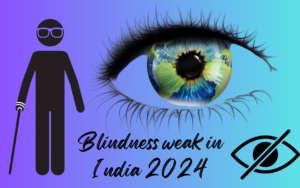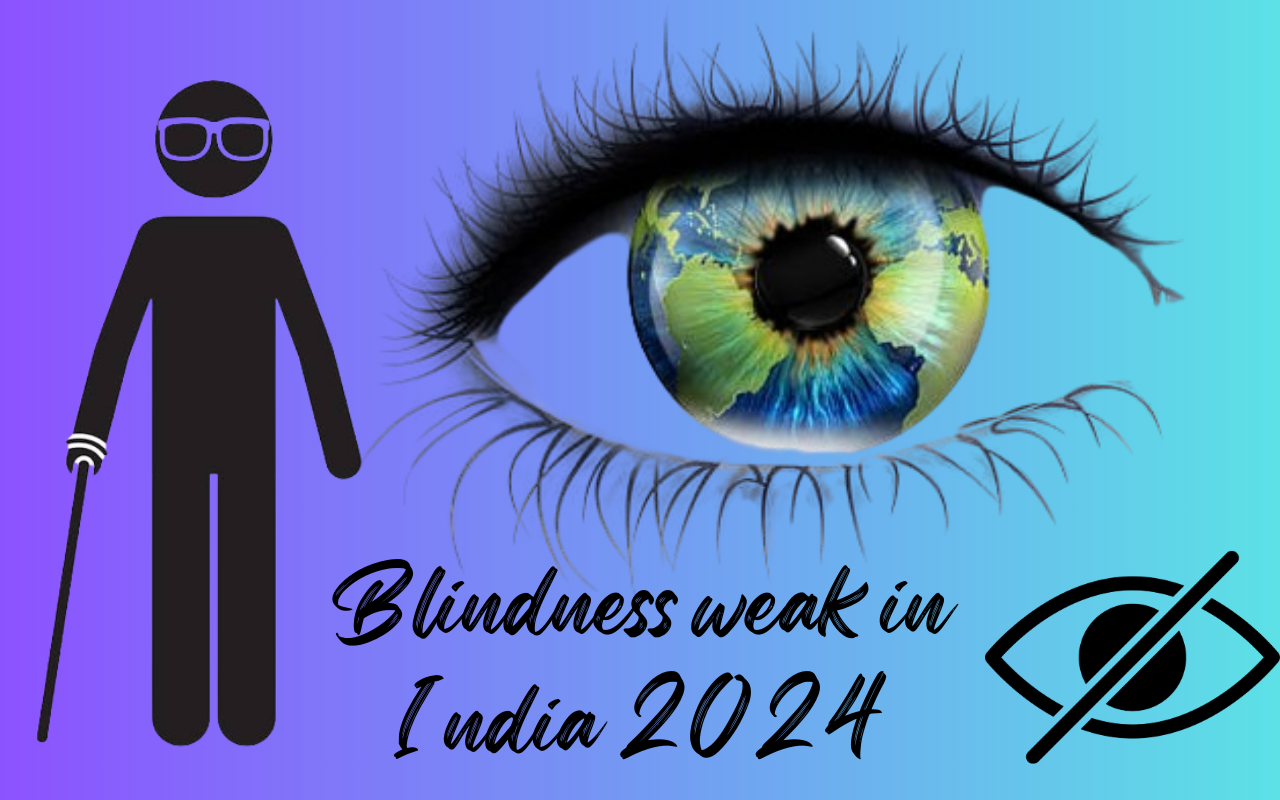Prevention of blindness week 2024:
Every year, the Prevention of Blindness Week is observed with the goal of encouraging preventative methods for vision loss and increasing public awareness of the causes of blindness. Typically, it entails a range of outreach initiatives, screenings, and educational campaigns to emphasize the significance of eye health and the early detection of eye disorders. Organizations, medical experts, and local communities unite throughout the week to underscore the importance of routine eye exams, appropriate eye care procedures, and availability of treatment for eye illnesses. The week provides an opportunity to promote laws and programs that promote eye health, such as those that deal with conditions like cataracts, glaucoma, diabetic retinopathy, and refractive errors, which are all preventable causes of blindness. By encouraging increased consciousness and activity, Prevention of Blindness Week contributes to reducing the burden of blindness and improving the quality of life for individuals affected by vision impairment.

Prevention of Blindness week The Government of India observes Eye Awareness Week 2024 from April 1st to April 7th to raise public awareness of eye health.
In our nation, 15 million individuals are blind or visually impaired. There are about 37 million blind people in the globe. The Indian government has established a number of institutions as part of a mission to educate the public and give blind people possibilities.
“There is no better way to thank God for your sight than by giving a helping hand to someone in the dark.” By:- Helen Keller…
Community groups, government agencies, eye health organizations, and healthcare providers organize a range of events and programs during Prevention of Blindness Week. These pursuits could involve:
Public awareness campaigns: Information is shared about common eye conditions, preventive measures, and the significance of obtaining treatment as soon as possible through media outlets, social media platforms, and community activities.
Free eye exams: A lot of organizations provide low-cost or free eye exams to underprivileged areas, enabling people to identify vision issues early and receive the required care.
Educational programs: To enlighten individuals on the value of good eye health, how to take care of their eyes properly, and how to avoid vision loss, schools, colleges, and community centers may hold lectures, workshops, and informational sessions.
Activities for advocacy: Preventing Blindness Advocacy groups use this week to pressure lawmakers to support increased funding for vision research, better access to eye care services, and the adoption of laws aimed at preventing blindness.
Events dedicated to raising money: Throughout the week, certain organizations host events to raise money for vision-related projects, such financing research on medicines that could save sight or offering eye care services to underprivileged groups.
Prevention of Blindness Week holds significant importance for several reasons:
- Increasing Awareness: It provides a forum for enlightening the public on the reasons behind blindness, the value of routine eye exams, and ways to avoid losing vision.
- Early Detection: By promoting eye exams, the week aids in the early identification and management of eye disorders that may prevent or postpone vision loss.
- Encouraging Ocular Health: Prevention of Blindness Week encourages the use of protective eyewear, eating a balanced diet full of nutrients that are good for the health of the eyes, and abstaining from bad habits like smoking.
- Access to Care: It emphasizes how critical it is to guarantee that those in underprivileged communities and those living in distant places have access to high-quality eye care services.
- Advocacy: During the week, legislators can be encouraged to prioritize eye health on public health agendas, provide funding for initiatives that support vision, and enact laws that support the prevention and treatment of eye disorders.
- Reducing the Burden of Blindness: Prevention of Blindness Week works to lessen the worldwide burden of blindness and vision impairment by increasing awareness and advocating preventative measures. This enhances the lives of those who are afflicted as well as their communities.
History of Prevention of Blindness Week :
Under the Societies Registration Act of 1860, the National Society for the Prevention of Blindness week was established in 1960. Jawaharlal Nehru and Raj Kumari Amrit Kaur created it. In addition to aggressively collaborating with Sight Savers, Rotary International, and other major corporations, NSPB is an entirely volunteer organization that is supported by contributions and donations. In an effort to end preventable blindness by 2020, the World Health Organization, the International Agency for the Prevention of Blindness, and other NGOs launched the global campaign “Vision 2020: The Right To Sight,” to which the Indian government has now participated.
The origins of Blindness Awareness Week, or National Blindness Prevention Fortnight, in India can be traced back to campaigns to increase public knowledge of visual impairment and to encourage treatment and preventive measures. The origins of this week-long campaign may be found in the middle of the 20th century, when national organizations and government agencies started to confront the problem of blindness. This is a thorough timeline of how Blindness Awareness Week in India came to be:
1950s-1960s: With the formation of groups such as the National Association for the Blind (NAB) and the government’s increased emphasis on public health efforts, conversations concerning blindness prevention gained traction.
1976: The Government of India established the National Programme for Control of Blindness (NPCB) as a centrally supported scheme to reduce the prevalence of blindness throughout the country. This was a key step toward coordinated efforts to combat vision impairment.
1982: The NPCB increased its efforts, and as part of its awareness and advocacy programs, it set aside a dedicated period to promote blindness prevention activities. This marked the official start of Blindness Awareness Week.
From the 1980s to the 1990s, Blindness Awareness Week increasingly acquired attention and involvement in several Indian states. This week’s activities often include free eye exams, the distribution of instructional materials, awareness campaigns in schools and communities, and collaborations with healthcare practitioners.
2000s: As medical technology advanced and public awareness grew, the focus of Blindness Awareness Week shifted to encompass not only prevention efforts, but also treatment and rehabilitation services for the visually impaired.
From 2010 until the present, Blindness Awareness Week is observed yearly, usually in the first week of April. This week’s events have become more diverse and inclusive, with an emphasis on reaching out to marginalized communities and ensuring everyone has access to eye care services



